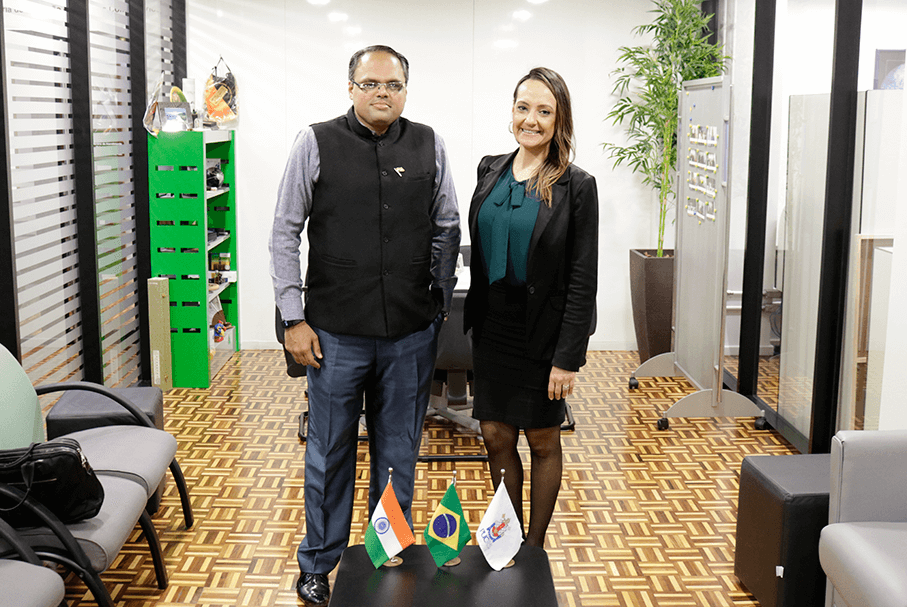Lecture was given by visiting professor Dattesh Parulekar of University of Goa.
Indian scholar Dattesh Parulekar, of the University of Goa, delivered the opening class of the Graduate Programs in Philosophy (PPGF) and History (PPGH) of PUCRS on Aug 28. At the conference Changing Contours and Shifting Trajectories in International Politics: Role of India, China and Latin America in the Global Governance, he discussed aspects of international politics and China-India relations in global leadership, as well as their impact on Latin America.
Parulekar labelled China and India as two growing “powerhouses,” as he discussed the concept of power in international politics. To his mind, in the past, military and commercial power were key points for this domination; now technology and diplomacy come as strategic issues in the global scenario. “It is becoming increasingly clear that the power structure is shifting from the West to the East,” he said.
Chinese Power
He shared data on China’s large-scale growth and its position of superiority when compared to the United States. Among other things, Parulekar talked about the growth in Asian technology, infrastructure development and changes in personal mobility. However, although this has happened at a fast pace, the visiting professor draws attention to the prevailing political model in China and bills communism as the country’s major deficiency before global leadership.
“Although China is in constant development, democracy is not a reality there. And in terms of global leadership, two points are critical to success: ability and confidence, ” Parulekar says. The way he sees it, even though China has power, it does not have leaders.
Trust and diplomacy
As he introduced the scenario of India, the visiting professor discussed how the country has used diplomacy to strengthen its approach to global leadership. “Regarded as a ‘good’ democracy, the country today lives in a a culture of peace, moderation, pluralism, multiculturalism and diversity. This is a model that will be in high demand if the world is to thrive in terms of globalization, ”he adds.

Parulekar was welcomed to the Office of International Cooperation by Executive Coordinator Carla Cassol | Image: Mariana Haupenthal
According to Parulekar, there will come a time when countries will have to opt for new approaches to global governance in the face of the depletion of Western models. “We can choose the Chinese model of growth, with a short-term view, although we know that individual freedom will always be threatened. Despite the fact that China is part of it, the country is not integrated. Or we can take our chances on a long-term model. This model is intended to bring countries together and sees the world as a great space for exchange, harmony and diplomacy, ”he concludes.
The visit marks the beginning of the activities to be developed by PUCRS in partnership with the Indian institution. This partnership results from the work mission of School of Humanities professor Dr Agemir Bavaresco to India in Feb 2019. Now, a cooperation agreement to certify the intentions of the two institutions is underway.
About Dattesh Parulekar
Dattesh Parulekar is a Professor of International Relations at the Center for Latin American Studies at the Department of International Relations at the University of Goa, India. He completed his PhD at the School of Advanced International Studies (SAIS) at John Hopkins University in the United States. He is the Vice President of the Forum for Integrated National Security (FINS) and a Visiting Professor at various universities around the world. His mission is to introduce people to the India’s policies and its relations with global governance.